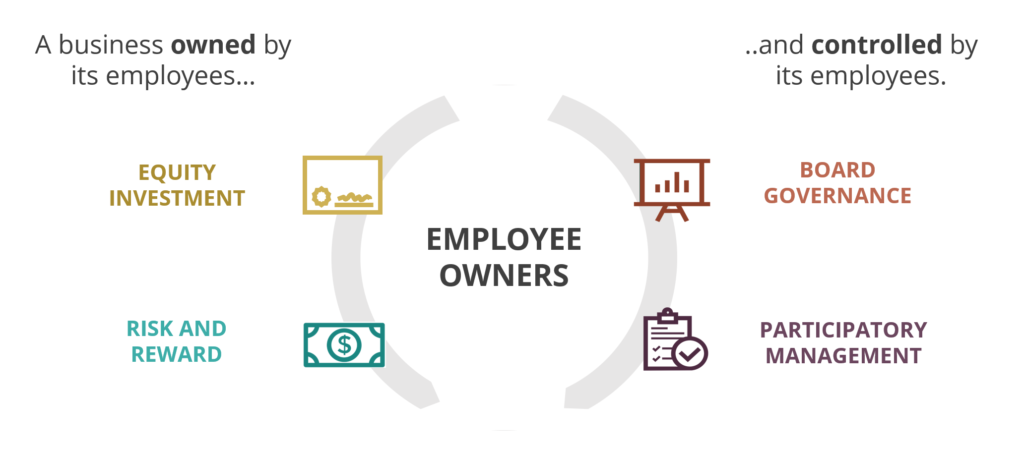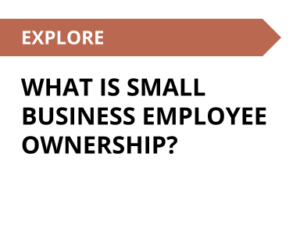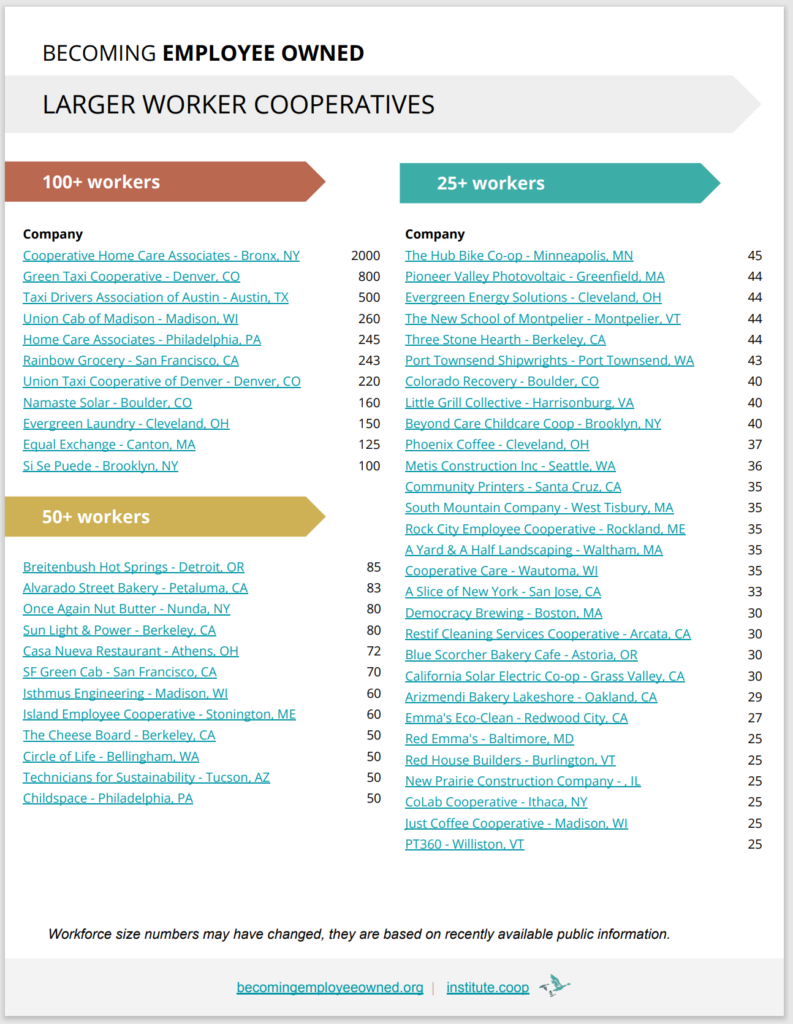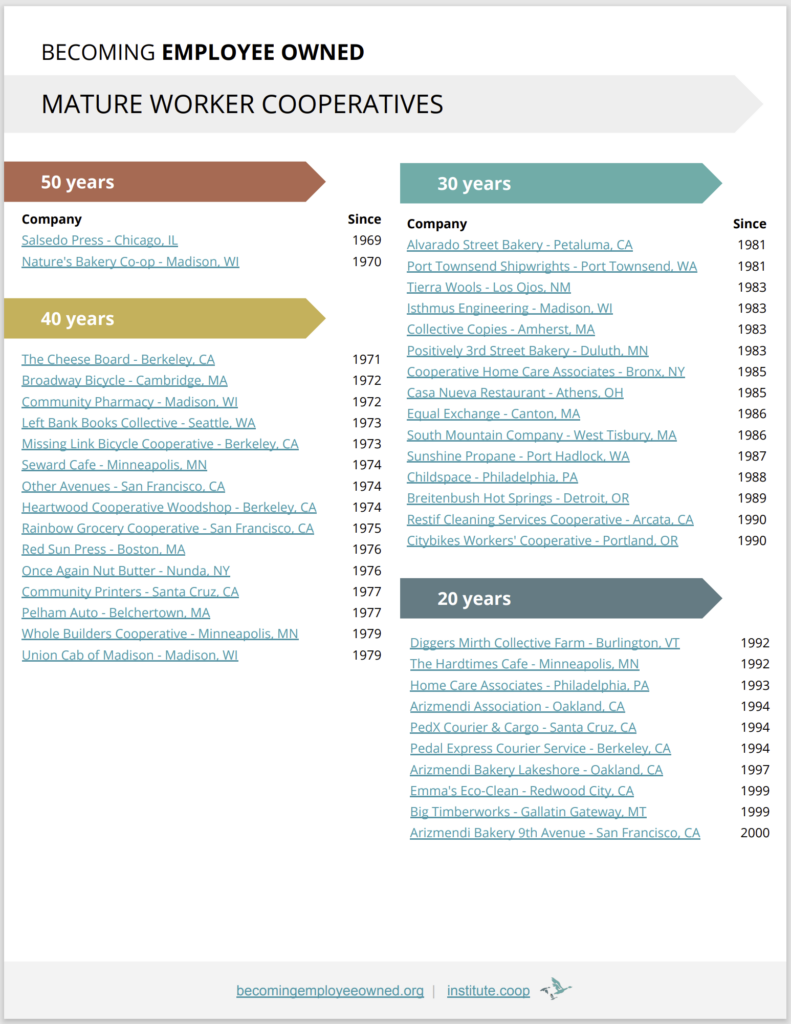
In the Explore stage, the owner learns the benefits and options of employee ownership and decides whether to invest further time and resources. During this stage it is helpful to have a knowledgeable local champion of the idea to speak to in confidence, and an opportunity to see how other businesses have made the transition. The essential question is whether employee ownership will meet the outcomes desired by the seller. Outcomes may be financial security, community benefit, or maintaining the legacy of the business.
- WHAT: Key stakeholders, generally the owners, study the idea and decide that it is worth pursuing
- WHO: The selling owner; a local advisor who can offer confidential guidance; sometimes key employees
- What is Small Business Employee Ownership?
- How Does Small Business Employee Ownership Work?
- What are the Benefits of Employee Ownership?
- What are the Stages of a Transition to Employee Ownership for a Small Business?
- Which Small Business Sectors Have Concentrations of Employee Ownership?
- What are Some Examples of Employee Owned Small Businesses?
What are the Benefits of Employee Ownership?
Transitioning a small business to employee ownership can have positive impacts on employee engagement, productivity, and retention; anchor a lasting legacy for your efforts building the business; and offer a financially rewarding exit path that can be supported by experienced professional assistance. Small business owners throughout the United States are increasingly seeing employees as highly desirable buyers because their expertise operating business offers continuity, which buoys company value, and because of their commitment to the main street social fabric that could be jeopardized by outside buyers.
Converting to a cooperatively owned business can benefit the business, existing owner and the community:
Good for the Business
- Studies show that the combination of employee ownership and employee participation yield substantial improvements in firm performance.
- As companies that maintain jobs and wealth in the community, employee-owned businesses often have loyal customers who patronize the business for their values as well as their services.
- Employee-owned businesses have been shown to attract talent and have above average retention rates.
- Employee ownership keeps companies competitive by engaging all employees as problem-solvers and innovators.
- Depending on the form, employee ownership can have significant tax advantages that allow for increased working capital to grow and improve the business.
Good for the Business Owner
- Selling to employees is a flexible exit strategy. The selling owner(s) can reduce involvement in the company on their own timeline.
- The selling owners can institutionalize the values and culture of the company they built, which is not generally possible in a sale to a competitor or private equity firm.
- Owners can protect jobs and reward the employees who helped make the company successful.
Good for the Community
- In an employee-owned company, the profits of the business go to employees, not distant investors, building community wealth and strong local economies.
- Employee-owned companies provide quality jobs with better compensation and meaningful opportunities to participate in decision-making.
- As locally rooted businesses, employee-owned companies often give back to their communities by supporting local causes
How Does Small Business Employee Ownership Work?
An employee-owned business is owned and controlled by its employees.
While there are a number of legal entity options – corporations, LLCs, trusts – they all share equity ownership that gives employees real risk and reward, and a path for employee participation to voice their desires, and to improve their work life.

What are Some Examples of Employee Owned Small Businesses?
Recent Transitions

This 2-page list of small businesses that have recently transitioned to a worker cooperatives or employee ownership can be used as a handout to raise awareness about the growth potential of the model. As a digital resource, each company is linked to resource page of articles and videos to learn more from.
Larger Worker Cooperatives

This 1-page list of U.S. worker cooperatives that have more than 25, 50, and 100 workers can be used as a handout to raise awareness about the growth potential of the model. As a digital resource, each company is linked to resource page of articles and videos to learn more from.
Mature Worker Cooperatives

This 1-page list of U.S. worker cooperatives that have been operating for 20, 30, 40, and 50 years can be used as a handout to raise awareness about the resilience of the model. As a digital resource, each company is linked to resource page of articles and videos to learn more from.



